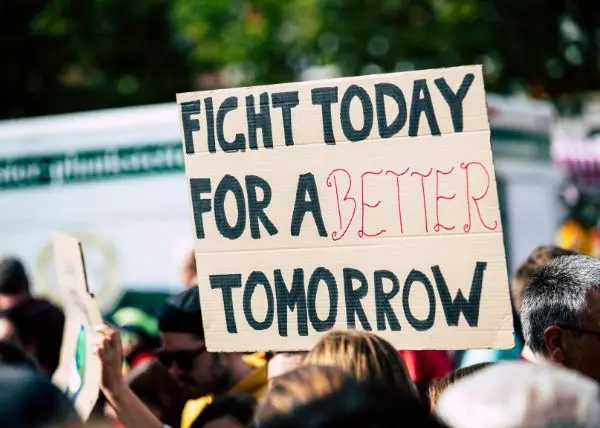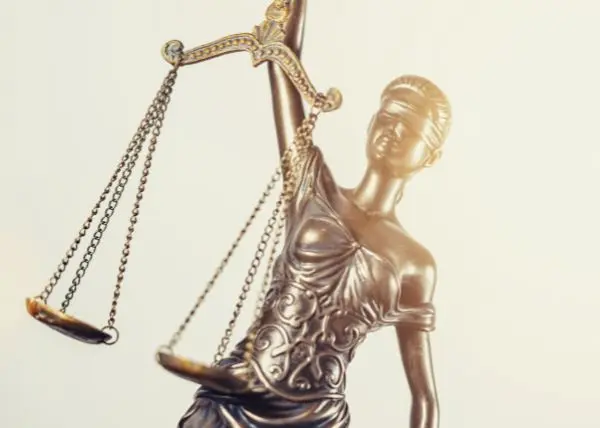New York Civil Rights & Criminal Defense Lawyers
Signs of Civil Rights Violations
Civil rights are fundamental in ensuring fair treatment and legal protection against discrimination for every individual. However, recognizing when these rights have been violated can be challenging. At Sivin, Miller & Roche, LLP, we believe in empowering our clients and readers with the knowledge to identify potential civil rights violations. Here’s a guide to help you understand if your civil rights may have been compromised. If you believe your civil rights have been violated, contact our experienced civil rights lawyers today.
What Are Civil Rights?

Civil rights refer to the basic rights and freedoms that are guaranteed to all individuals, typically enshrined in the constitution and other legal statutes of a country. These rights are fundamental in ensuring that all individuals are treated fairly and are protected from discrimination and unequal treatment based on characteristics such as race, gender, religion, and other attributes. The concept of civil rights is central to the idea of legal and social equality.
Key aspects of civil rights include:
Equal Treatment Under the Law
This principle ensures that individuals are treated equally in the eyes of the law, without discrimination.
Freedom of Speech and Expression
The right to freely express one’s opinions, beliefs, and ideas without fear of government retaliation or censorship.
Right to Privacy
Protects individuals against unwarranted intrusions into their personal and family life.
Freedom of Religion
The right to practice any religion of one’s choice or to live without following any religion, without facing discrimination or imposition by the state.
Voting Rights
The right of citizens to participate in elections and have a say in the governance of their country.
Freedom from Discrimination
Protection against discrimination on various grounds such as race, gender, age, religion, sexual orientation, disability, etc., in different spheres of life including employment, education, and access to public services.
Right to a Fair Trial
The guarantee that a person will receive a fair and public hearing by an impartial tribunal, including the right to a defense and the presumption of innocence until proven guilty.
Freedom of Assembly
The right to gather peacefully for any lawful purpose, including protests and demonstrations.
Civil rights movements have played a significant role in shaping laws and societal norms, often focusing on ensuring that these rights are not only recognized legally but also implemented effectively in society. In the United States, the Civil Rights Movement of the 1950s and 1960s, led by figures like Martin Luther King Jr., was instrumental in challenging racial segregation and discrimination, leading to significant legislative changes like the Civil Rights Act of 1964 and the Voting Rights Act of 1965.
Civil Rights Vs. Civil Liberties
Civil rights differ from civil liberties, although the terms are sometimes used interchangeably. Civil liberties generally refer to the basic freedoms guaranteed by the constitution or foundational laws of a country, such as freedom of speech and freedom of religion. Civil rights focus more on the right to be free from unequal treatment based on certain protected characteristics in settings such as employment, education, and housing.
Signs of Civil Rights Violations
Recognizing signs of civil rights violations is crucial for seeking justice and upholding the principles of equality and fairness. Civil rights violations can occur in various forms, and identifying them often requires an understanding of the rights you are entitled to under the law. Here are some common signs that may indicate a civil rights violation:
Discrimination Based on Protected Characteristics
Experiencing unfair treatment due to race, gender, religion, nationality, age, disability, or sexual orientation. This can occur in workplaces, educational institutions, housing, and access to services.
Infringement of Freedom of Speech and Expression
Being censored, reprimanded, or penalized for expressing your opinions, especially when done in a peaceful manner or in public forums.
Unlawful Searches and Seizures
Law enforcement conducting searches of your person, property, or digital information without a warrant or probable cause, violating your Fourth Amendment rights.
Police Misconduct and Excessive Force
Encountering police brutality, use of excessive force during an arrest, or mistreatment while in custody, especially if these actions seem motivated by discrimination.
Violations of the Right to a Fair Trial
Not receiving a fair, impartial trial, or being denied access to legal representation, which are fundamental aspects of the Sixth Amendment.
Voting Rights Infringements
Experiencing obstacles to voting such as unjust voter ID laws, purging of voter rolls, or discrimination at polling stations.
Unequal Access to Public Services and Accommodations
Facing barriers or differential treatment when accessing government services, public facilities, or businesses due to discriminatory practices.
Harassment and Hate Crimes
Being subjected to threats, violence, or harm based on your identity, which can be considered both a criminal act and a civil rights violation.
Workplace Violations
Encountering workplace harassment, wrongful termination, wage discrimination, or being denied reasonable accommodations for disabilities.
Inadequate Response to Discrimination Complaints
If institutions or authorities dismiss or do not adequately address your complaints about discrimination or harassment.
Denial of Equal Educational Opportunities
Facing discrimination in educational settings, such as segregation, disproportionate discipline, or denial of services and accommodations for disabilities.
Housing Discrimination
Being refused rental, facing eviction, or being denied a loan or housing assistance based on discrimination.
Restrictions on Freedom of Assembly
Being prohibited from or punished for participating in peaceful protests or assemblies.
Recognizing these signs is the first step toward addressing and rectifying civil rights violations. If you believe your civil rights have been violated, it’s advisable to document the incidents and seek legal advice from a professional experienced in civil rights law.
What To Do If Your Civil Rights Have Been Violated
If you believe your civil rights have been violated, it’s important to take appropriate steps to address the situation and seek justice. Here’s a guide on what you can do:
1. Document Everything
- Record Details: Write down everything about the incident as soon as possible. Include dates, times, places, and the names of any witnesses or involved parties.
- Gather Evidence: Collect any relevant documents, photos, videos, emails, or messages that could support your claim.
2. Seek Legal Advice

- Consult a Civil Rights Attorney: An attorney specializing in civil rights law can provide guidance on your rights and the legal options available.
- Understand Your Rights: Familiarize yourself with the relevant civil rights laws that apply to your situation.
3. File a Complaint
- Government Agencies: Depending on the nature of the violation, you may need to file a complaint with a government agency like the Equal Employment Opportunity Commission (EEOC) for workplace discrimination or the Department of Justice Civil Rights Division.
- Internal Complaints: If the violation occurred in a workplace or educational institution, file a complaint through the internal channels available.
4. Preserve Your Rights
- Deadlines: Be aware of any time limits for filing complaints or lawsuits. Missing these deadlines can jeopardize your case.
- Avoid Public Statements: Be cautious about making public statements or posting on social media about the incident, as these could affect your legal case.
5. Support Your Emotional Well-being
Incidents involving civil rights violations can be traumatic. Consider seeking support from counseling services or support groups.
6. Engage with Community Organizations
Reach out to local civil rights or advocacy groups. They can offer support, resources, and potentially amplify your case.
7. Consider Legal Action
- Civil Lawsuit: If your situation warrants it and other remedies are insufficient, your attorney may suggest filing a civil lawsuit for damages or injunctive relief.
- Understand the Process: Be prepared for the legal process, which can be lengthy and complex.
8. Stay Informed
Keep yourself informed about any developments in your case and in the broader legal context of civil rights.
9. Educate Others
Sharing your experience (when appropriate and advised by legal counsel) can help raise awareness and prevent similar violations in the future.
Take Action to Protect Your Rights
If you believe your civil rights have been violated, don’t stay silent. Act now to defend your rights and seek justice. Contact Sivin, Miller & Roche, LLP for expert legal guidance and support. Our experienced civil rights attorneys are dedicated to fighting for your rights and ensuring that your voice is heard. Remember, standing up for your rights not only helps you but also contributes to upholding justice for everyone. Call us today for a consultation and take the first step towards safeguarding your civil liberties.
Tell Us About Your Case
Fields marked with an * are required
"*" indicates required fields

